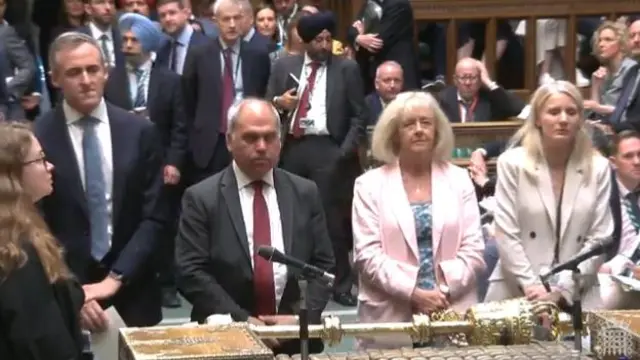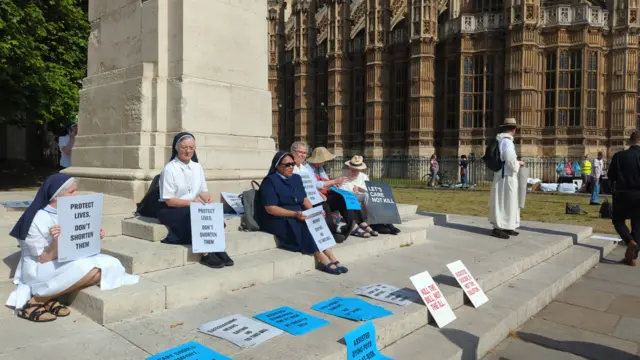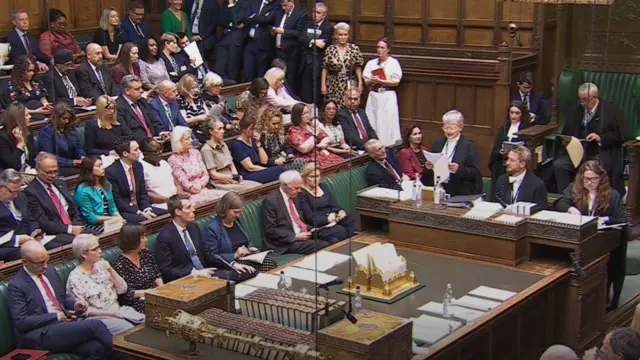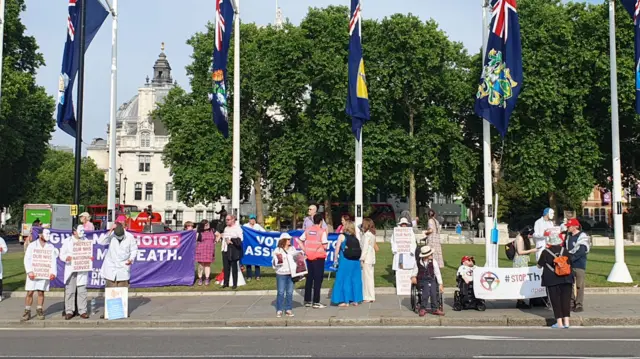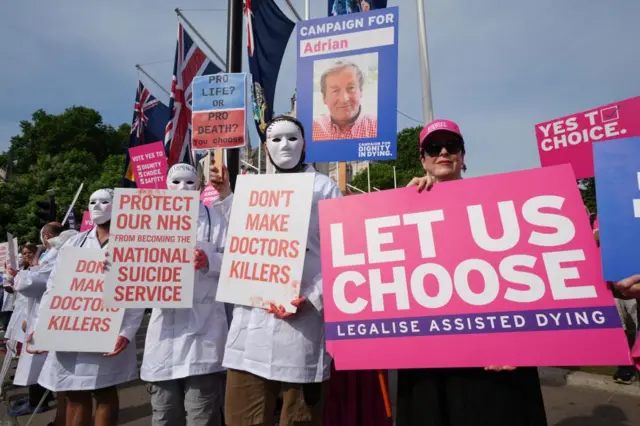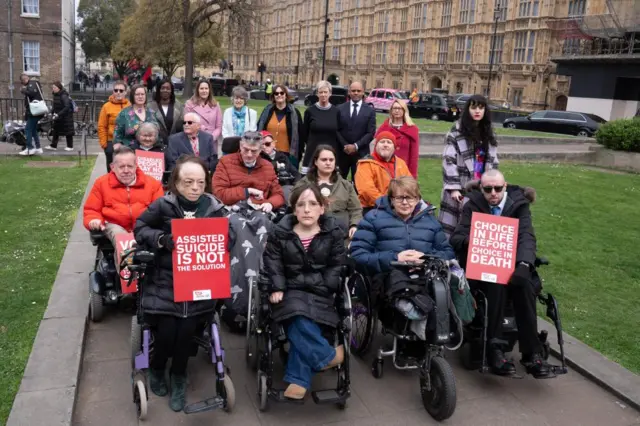Debate begins - watch live abovepublished at 10:43 BST 20 JuneBreaking
In the House of Commons, MPs are beginning the final debate on The Terminally Ill Adults (End of Life) Bill.
The bill is entering its third reading and, if approved, it will go to the House of Lords for scrutiny.
If MPs do not support it, it will fail - and that will be the end of the road for this bill.
We're expecting a vote sometime before 14:30 BST.
We'll bring you key lines from the debate in the Commons and you can follow by pressing watch live above.

